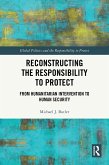Akbar Ganji, called by some "Iran's most famous dissident,” was a member of the Islamic Revolutionary Guard Corps. But, troubled by the regime's repressive nature, he became an investigative journalist in the 1990s, writing for Iran's pro-democracy newspapers. Most notably, he traced the murders of dissident intellectuals to Iran's secret service. In 2000, Ganji was arrested, sentenced to six years in prison, and banned from working as a journalist. His eighty-day hunger strike during his last year in prison mobilized the international human rights community.The Road to Democracy in Iran, Ganji's first book in English, demonstrates his lifelong commitment to human rights and democracy. A passionate call for universal human rights and the right to democracy from a Muslim perspective, it lays out the goals and means of Iran's democracy movement, why women's rights trump some interpretations of Islamic law, and how the West can help promote democracy in Iran (he strongly opposes U.S. intervention) and other Islamic countries. Throughout the book Ganji argues consistently for universal rights based on our common humanity (and he believes the world's religions support that idea). But his arguments never veer into abstraction; they are rooted deeply in the realities of life in Islamic countries, and offer a clear picture of the possibilities for and obstacles to improving human rights and promoting democracy in the Muslim world. Since his release from prison in March 2006, Akbar Ganji has been traveling outside Iran, meeting with intellectuals and activists in the international human rights community. He is currently living in the United States.
Dieser Download kann aus rechtlichen Gründen nur mit Rechnungsadresse in A, B, BG, CY, CZ, D, DK, EW, E, FIN, F, GR, HR, H, IRL, I, LT, L, LR, M, NL, PL, P, R, S, SLO, SK ausgeliefert werden.









